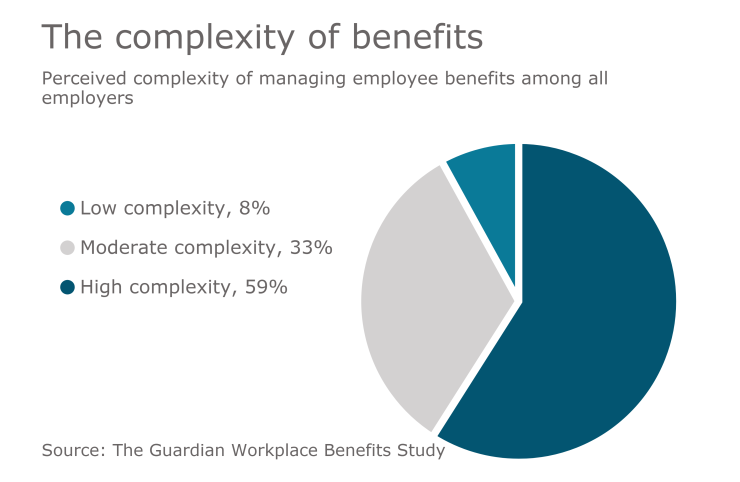Business executives are well versed in the concepts behind a supply chain manager, but they rarely associate that concept with their health insurance.
Who ensures that an employer is spending the right amount of money on coverage, taking advantage of the most innovative concepts and strategies, and getting the maximum impact for their employees at the most optimal price point?
This lack of attention to detail goes not just for employers, but benefit advisers as well. In my conversations with advisers, they understand the critical need for a supply chain manager to take charge of their clients’ enhanced benefits needs, but they aren’t sure how it fits into their own brokerage’s picture.
There is a huge revenue opportunity through enhanced benefits to not only enhance your existing book of business by upselling and cross-selling new products and services, but to also bring new groups into the fold. The latter is not something you’ll hear from a typical carrier rep.
When I ask advisers who on their teams are ensuring they have the world's best contract with carriers and that their clients are being serviced properly, they typically say they don't have anybody doing that.
They need to understand that working with a truly strategic enhanced benefits partner can both maximize their firm’s existing book of business and also lead to acquiring new clients.
As one example, I met my good friend, Chris Wolpert, a 2019 EBA Rising Star and owner and principal of Group Benefit Solutions in the Seattle area last year. He told me he liked the work I did to help clients, but he hasn’t seen much money in it for him as an adviser.
In my grand old fashion, I responded that his firm is likely seeing less profit — possibly by as much as 35% — from mishandling of his benefits.

That led to a deeper conversation where he revealed he was using a carrier rep to work with his approximately 60 group clients on enhanced benefits. He said he considered the rep a friend and didn’t think much beyond introducing him to his groups and expecting a “fair” commission split in return.
I pressed him a bit, asking what kind of split he would view as fair. Assuring me it was good, he said he’d get back to me the next day after he could check his numbers. The verdict? Ten percent. But 10% of what? The world’s best contract or the world’s worst? He didn’t know.
He replied that he was just a small shop and didn’t have a ton of clients, so he had to imagine he was “on one of the worst contracts that carrier has to offer.” It didn’t matter, I told him, 10% is still terrible.
I explained how I only work with carriers who give me and my adviser clients their best contract, and that we split from the top down with a minimum 30% split, ensuring my partners get a cut of all those carrier overrides, manager hierarchies, and even bonuses — all the things they’re typically never included on or don’t even know about.
As I continued to peel back the onion that was the carrier and carrier rep Chris was using, and as we got further into the weeds, he laid out another very common scenario, in that his carrier rep friend actually outsources most of the work to his brand new and very green sales agents. When they’d inevitably drop the ball, the client would get upset. And who would they blame? Chris, their adviser, of course. I told him, that it’s no wonder he didn’t see much value in “voluntary.”
We stayed in touch after the conference, and eventually he introduced me to one of his clients. As a one-man shop, he loved the idea of having me serve as his white-labeled ‘VP of Enhanced Benefits.’
Now, Chris uses the new strategies to enhance his existing income with his current book of business and open new accounts. In the last few months he's opened up several new accounts single handedly.
When I ask my client adviser partners what’s of the most value to them, maximizing their existing book of business to gain new revenue or bringing in new business, I can’t remember the last time someone didn’t say they want new business.





